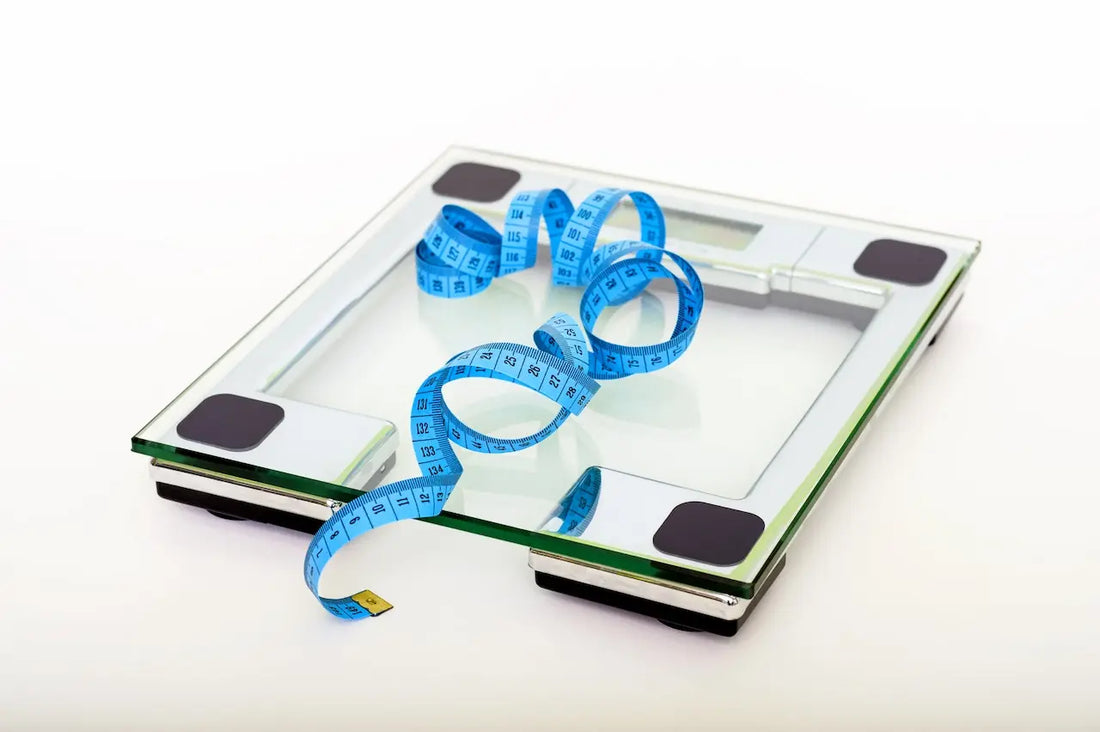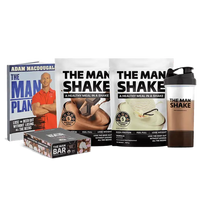
6 Scientifically Proven Tips For Fast Weight Loss
Share
It seems like every man and his dog has a different weight-loss trick these days. My uncle, for example, swears that drinking tomato juice is his weight loss secret.
While that may work for him, very few of these ‘weight loss hacks’ are backed by any real science. So to save you time and money, we’ve compiled a list of 6 things that science actually has proven to help you lose weight faster.
Get 7-8 Hours Of Sleep Per Night
Yes, we’ve brought up sleep again, but for good reason… it’s so important!
Studies have repeatedly identified sleep deprivation to be a primary cause of obesity in children and adults. A systematic review of epidemiological studies about sleep found that short sleep duration increased the likelihood of obesity in adults by 55%, and in children by 89%.
In a recent US study, participants were split into two groups – one group was given 8.5 hours of sleep per night and the other group was given 5.5 hours of sleep. Both groups were put on the same calorie-restricted diet. After 2 weeks, the study found that the group that was given 8 hours of sleep had lost twice as much fat as the sleep-deprived group. The sleep-deprived group also felt significantly hungrier, had less satisfaction after meals, and lacked the energy to exercise.
Not getting enough sleep also results in a rise in cortisol levels. Cortisol can inhibit the breakdown of fatty acids for energy within your body and increase the breakdown of muscle, meaning your body will store more fat and lose more muscle.
Tip: Limit your use of blue light-emitting devices like mobile phones and televisions before bed. Just one hour of mobile phone use before bed has been shown to delay melatonin production, the sleep-inducing hormone by up to 3 hours.

Drink enough water (at the right times)
Fun fact, drinking water burns calories!
A study conducted at Humboldt University in Germany found that drinking 500ml of water increases your metabolic rate (the rate at which you burn calories at a resting state) by 30%. This increase occurred within 10 minutes of consuming the water and reached a maximum rise after 30-40 minutes. In total, the thermogenic response, or energy expenditure, was about 100 kilojoules. Based on this finding, drinking 2 litres of water per day causes an energy expenditure of 400 kilojoules. This may not seem like a lot, but over the course of a year, it’s nearly 5kg of fat!
A 2010 Virginia Tech study also found that drinking 500ml of water before a main meal resulted in ~2kg extra weight loss over 12 weeks than just eating the meal alone for middle-aged and older adults.
Tip: Carry a water bottle with you throughout the day! And be sure to drink 500ml before meals.

Stay In A Caloric Deficit
Weight loss isn’t the complex thing most experts make it out to be – if you consume fewer calories than your body uses throughout the day, you’ll lose weight. This is called a caloric deficit.
A caloric deficit is what all weight loss methods seek to achieve, expending more calories than you absorb. This is why exercise is such a small part of weight loss. You can spend 30 minutes running to burn 350 calories, or you can use two tablespoons less oil while cooking. Each of these options dispells the same amount of calories from your diet. Crazy right?
This is why meal replacements like The Man Shake have been shown to be the most beneficial weight loss method both in the short term and long term. Meal replacements create a healthy caloric deficit to induce weight loss while providing your body with the nutrients it needs to function optimally.
Tip: You don’t need to waste your time counting calories from every meal you eat and ensuring you’re getting enough macronutrients. Having a meal replacement like The Man Shake is a fool-proof way of enabling a caloric deficit.
Try Intermittent Fasting
Intermittent fasting is a popular method of weight loss with many proven benefits.
Time-restricting your food consumption creates a hormonal response in your body that facilitates fat-burning and weight loss. One such effect of fasting is that your blood insulin levels drop significantly. When this happens, your cells find it more difficult to take up glucose as energy, so they use an alternative fuel – fat!
Studies have also shown short-term fasting to increase your metabolic rate by 3.6-14%, which helps you burn even more calories while in a rested state.
Tip: An easy way to try intermittent fasting is to restrict your eating within a 10-hour window across the day (e.g. 8 am to 6 pm).

Eat High-Protein Meals
Eating high-protein meals isn’t just great for muscle growth and health, it’s also shown to have numerous benefits for weight loss and maintenance.
Researchers from the University of South Australia have found that a high protein diet results in a greater loss of body fat than that of standard protein, lower carb diets. The high protein diet was also shown to increase the retainment of lean body mass, meaning the excess weight loss was predominantly fat tissue.
Furthermore, a 2004 study from Maastricht University in The Netherlands found that a sustained high-protein diet led to a 50% reduction in weight regain during the post-diet, weight maintenance phase.
Tip: Not all protein is created equal. Get yours from minimally processed lean meat, or quality dairy. If you’re vegetarian or vegan, look to plant-based protein supplements like The Vegan Man Shake or alternatives.

Keep A Food Diary
People who keep food journals are more likely to be successful in weight loss and maintaining a healthy weight.
This is based on the findings of a 2008 US study that included nearly 1700 overweight or obese adults aged over 25. For six months, participants kept food diaries and were encouraged to eat healthily and exercise. Interestingly, the results found that people who kept food diaries 6 days a week, logging everything they ate and drank, lost twice as much weight as those who kept food journals for one day or less per week.
Food diaries are also beneficial to identify areas in which you can improve, such as snacking and calorie-filled drinks.
Tip: Use an app on your phone! They are easy to use and there are heaps out there that are very accurate. Look at MyFitnessPal as an example, it’s free and simple.








